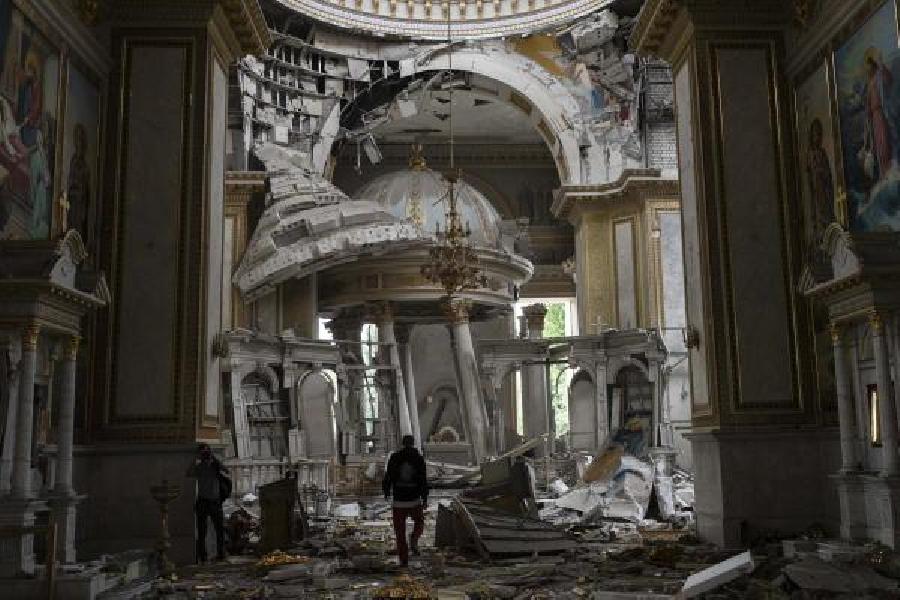For two decades, Ilya Solkan served as the parish priest in a tiny Ukrainian village outside the capital, Kyiv. He baptized babies, blessed marriages and conducted funerals. The Orthodox church stood at the heart of the village and Solkan was central to its life.
“Being a priest is my God-given calling,” he said in an interview at his house in the village of Blystavytsya, describing the church as his “second home”.
Today, he is unemployed and has been ostracized from the village after parishioners booted him out last October for putting politics into his pastoral care.
The removal of Solkan, a priest with no public profile beyond his home village, reflects the gradual rejection by much of Ukrainian society of a church that answers to Moscow — a process that has been accelerated by the war. Specifically, it speaks to the division between the two branches of Orthodox Christianity.
In Ukraine, the Orthodox Church has an independent national arm, which formally gained canonical status from the Eastern Orthodox Church in 2018, and an arm, to which Solkan belongs, that is tied to the Russian Orthodox Church in Moscow. For years, his branch has been a symbol of Russian influence and, since the invasion, it has become a target of Ukraine’s drive to rid itself of Russian cultural influence.
The leader of the Russian Orthodox Church, Patriarch Kirill, is an enthusiastic supporter of President Vladimir. V. Putin of Russia.











